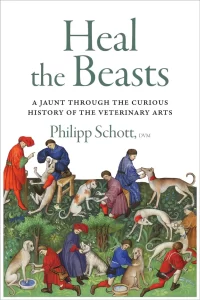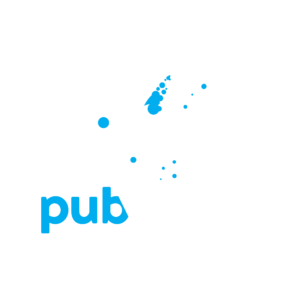Publishing Talks Interviews Derek Newton/Verify My Writing
October 24, 2025 by David
Filed under PublishingTalks, Technology, The Future
 Publishing Talks started as a series of conversations I had with book industry professionals and others involved in media and technology, talking about the future of publishing, books, and culture. It was great fun discussing the evolution of publishing in the context of technology, culture, and economics.
Publishing Talks started as a series of conversations I had with book industry professionals and others involved in media and technology, talking about the future of publishing, books, and culture. It was great fun discussing the evolution of publishing in the context of technology, culture, and economics.
More recently, I’ve also had conversations with a variety of editors, publishers and others who have been innovators and leaders in independent publishing and bookselling in the past and into the present.
These conversations have been inspirational to me. I have had the pleasure of speaking with visionaries and entrepreneurs, editors, publishers, and others who have influenced and changed contemporary literature and culture. I’ve also had the opportunity to speak with a number of friends and colleagues in the book business about their work.
I really enjoy these opportunities to learn about the boundless creativity that motivates so many in the book business. I was approached recently by a PR firm who wanted me to talk to edtech writer Derek Newton about a new project he has undertaken. While my first reaction was to ignore what seemed to be yet another “pitch,” when I read further about the project, my interest was piqued and I decided I should talk to Derek to find out more about his ideas.
Derek Newton has written extensively about education and technology, including contributions to the Atlantic, Washington Post, USA Today, Money Magazine and many others. He’s also a contributing writer at Forbes and founder of the new and very interesting project that we talked about in this episode, Verify My Writing.
Verify My Writing allows writers to get a verified certification that their work is real, authentic, and human. In short, this enables them to certify that their work was not created by AI. The certification can help with submissions and pitches. Verify My Writing also certifies books and articles that have already been published with a “Human-Written” hallmark. And as Derek and I discussed, there other applications for this sort of certification as well. While writers certainly have self-interest in proving to magazines and publishers that their work is original, it seems to me that publishers will also want to verify for themselves when they receive submissions that the work they are reading is wholly or at least substantially original.
Book publishers and magazines with limited editorial resources are now dealing with a tsunami of submissions, with no practical way to determine the originality of the work they are considering for publication.
Given how good some AI-assisted writing can be, and how often AI is inaccurate (or completely wrong), there’s no question that all of us as readers will also appreciate knowing whether what we are reading online is human or machine written. This sort of validation may become a requirement in the not too distant future.
I found this conversation to be stimulating and thought provoking. Derek’s Verify My Writing seems interesting, and compelling in that it comes from a writer whose work experience inspired it. I hope you find this conversation as stimulating as I did.
Here’s the Verify My Writing website.
If you want to learn more, contact Derek directly: DNewton@VerifyMyWriting.com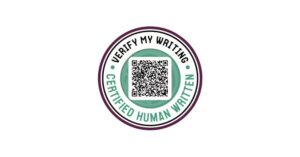
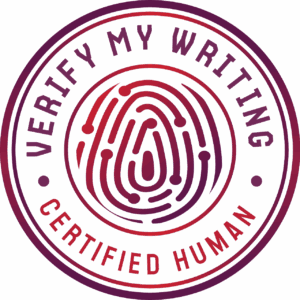
Podcast: Play in new window | Download
Publishing Talks Interview with Lauren Woods of LitBox
August 20, 2025 by David
Filed under PublishingTalks, Technology
 Publishing Talks started as a series of conversations with book industry professionals and others involved in media and technology, mostly talking about the future of publishing, books, and culture. It was great fun talking with people in the book industry about the evolution of publishing in the context of technology, culture, and economics. In the past few years, I’ve talked with a variety of editors, publishers and others who have been innovators and leaders in independent publishing and bookselling in the past and into the present. These conversations have been inspirational to me. I have had the pleasure of speaking with visionaries and entrepreneurs, editors, publishers and others who have influenced and changed contemporary literature and culture. I’ve also had the opportunity to speak with a number of friends and colleagues in the book business.
Publishing Talks started as a series of conversations with book industry professionals and others involved in media and technology, mostly talking about the future of publishing, books, and culture. It was great fun talking with people in the book industry about the evolution of publishing in the context of technology, culture, and economics. In the past few years, I’ve talked with a variety of editors, publishers and others who have been innovators and leaders in independent publishing and bookselling in the past and into the present. These conversations have been inspirational to me. I have had the pleasure of speaking with visionaries and entrepreneurs, editors, publishers and others who have influenced and changed contemporary literature and culture. I’ve also had the opportunity to speak with a number of friends and colleagues in the book business.
I really enjoy the opportunities to find out about the boundless creativity that motivates so many of us in the book business. When I read about Lauren Wood and her cool new project, Litbox, a book vending machine in Washington, DC, I had to reach out to her to find out more about it. Lauren’s goal was to create an innovative way to promote local readership with local authors, something that writers always feel strongly about. Even the best independent bookstores do not focus as much attention on local authors as most of us wish they would. “I want to give writers and people in this town something to feel excited about,” she says. “I wanted to bring a little bit of optimism into an otherwise bleak moment….Great literature is really about empathy and kind of deeply getting outside of your own framework and inhabiting another person’s consciousness.”
LitBox launched in May, 2025. Lauren made it work with a Kickstarter campaign that raised seed capital of $5000.
Almost everyone in the book business recognizes how challenging it is to connect books with readers in our media’s overwhelmingly saturated information deluge. Any project that can connect writers and books to readers in a personalized, area-specific way is worthy of our support. I am hopeful that Litbox will not be a one-off, and could inspire others to try out the idea. It seems to have worked successfully in England, where there are book vending machines in subway stations and many other locales.
If you’re in the DC area, look for a Litbox and try it out. It’s in the Western Market.
And here’s a good local story about the Litbox launch on the “Inchy’s Bookworm Vending Machine” website. It looks like they are encouraging others to use their machine wherever books could be sold by machine. I hope this idea catches on!
Reggie Van Lee buying the first book from LitBox.


Podcast: Play in new window | Download
Publishing Talks Interview with John Cheary of John Marshall Media
July 18, 2025 by David
Filed under PublishingTalks, Technology
 Publishing Talks began as a series of conversations with book industry professionals and others involved in media and technology, mostly talking about the future of publishing, books, and culture. It was great fun talking with people in the book industry about the evolution of publishing in the context of technology, culture, and economics.
Publishing Talks began as a series of conversations with book industry professionals and others involved in media and technology, mostly talking about the future of publishing, books, and culture. It was great fun talking with people in the book industry about the evolution of publishing in the context of technology, culture, and economics.
During the past several years, I’ve talked with a variety of innovators and leaders in independent publishing and bookselling from the past into the present.
These conversations have been inspirational to me. I have had the pleasure of speaking with visionaries and entrepreneurs, editors, publishers, and others who have influenced and changed contemporary literature and culture. And I’ve also had the opportunity to speak with longstanding friends and colleagues in the book business.
Whether you’re involved in book publishing or just interested in how the business works, it’s well worth understanding the ins and outs of audiobooks. Some of us can remember when audiobooks existed only on cassette tapes, which required a lot of effort and doubtless kept audiobook listening to a niche audience. With the advent of higher capacity CD’s, and more easily portable listening devices (and cars with factory CD players more frequently available), audiobook sales increased, but their higher cost kept audiobook sales from becoming a significant channel for most books (and the high cost of production prevented many titles from even being made into audiobooks).
In the past decade, the advent of digital audio players and near-universal broadband has changed the audiobook market completely. Audible was and remains the leader in digital audiobook sales, but there are many other outlets for audiobooks, and the market has expanded to become a significant revenue stream for publishers and authors.
John Cheary is the founder and CEO of John Marshall Media. He graduated from Berklee College of Music. Founding his business in 1995, he has grown it to become a leading independent audio production company – perhaps the largest of its kind. He knows more than almost anyone else I can think of about audiobook production and how the audio segment of the book business has evolved.
JMM produces audiobooks for a wide range of publishers, including Penguin Random House, Harper Audio, Google, Amazon, Scholastic, Macmillan, Simon & Schuster, McGraw-Hill, and many more. JMM has twenty one Studios in two countries, over 1,000 Narrators and Voice Actors, and has won five GRAMMY Awards.
It should come as no surprise that the biggest issue in audiobook publishing today is the advent of AI, seen by many as a way to replace more expensive humans with AI-generated narrators. Naturally, John has strong opinions about this subject—and many others. I think you will agree that what he has to say about AI narrators is likely applicable to other areas of creative business where AI use is being promoted as well.
John has been a friend and sometimes colleague for many years, and I am grateful to him for allowing me to record Writerscast interviews from time to time at JMM’s studio with its outstanding equipment and recording team—including this one.
I’d be surprised if you don’t learn something from this discussion — I certainly did. Please let me know what you think of our conversation.
Here’s a link to the JMM website.
Podcast: Play in new window | Download
Publishing Talks Interview with Jack David of ECW Press
January 6, 2025 by David
Filed under Ebooks and Digital Publishing, Publishing History, PublishingTalks, Technology, The Future
 I began Publishing Talks a number of years ago as a series of conversations with book industry professionals and others involved in media and technology. Most of these interviews originally involved the future of publishing, books, and culture, talking with people in the book industry about how publishing is evolving in the context of technology, culture, and economics.
I began Publishing Talks a number of years ago as a series of conversations with book industry professionals and others involved in media and technology. Most of these interviews originally involved the future of publishing, books, and culture, talking with people in the book industry about how publishing is evolving in the context of technology, culture, and economics.
Later this series broadened to include conversations to go beyond the future of publishing. In an effort to document the literary world, I’ve talked with a variety of editors, publishers and others who have been innovators and leaders in independent publishing in the past and into the present.
These conversations have been inspirational to me on many levels. I have gotten to speak with visionaries and entrepreneurs, as well as editors and publishers who have influenced and changed contemporary literature and culture. I’ve also had the opportunity to speak with a number of friends and colleagues I have met or worked with during the many years I have been in the book business.
More recently, I’ve been talking to book folks about what is going on in publishing today, quite often about the changes in marketing and promotion that have marked all media industries as social media has overwhelmed traditional media, creating an extremely complex and constantly changing environment.
One thing is certain about publishing – there are no final answers, but there are many really important questions that we should be asking all the time.
ECW is a terrific independently owned and operated Canadian publisher, now celebrating its 50th anniversary. I’ve known Jack David, one of its co-founders, for a long time. He is a really smart guy, and notably has managed (with the help of partners and a great staff) to create a thriving independent publishing business across the five decades the book business has changed the most in its history. It is decidedly difficult to be a book publisher in any time and place, but I think being commercially viable for a half century and being based in a relatively small market country with a geographical spread greater than the US makes ECW’s success even more remarkable. ECW does things its own way, to its advantage, in the long run. Unlike most publishers, they publish their own audio books. And their list is built the old fashioned way – through the enthusiasms of its editors. There is much here to be admired and learned from, not just for book publishers, but for anyone interested in media in the modern era.
Talking to Jack about books and culture is always fun. Getting to talk to him about book publishing for this podcast was and is a distinct pleasure I hope you will enjoy as much as I did.
Editor’s note: this interview runs longer than most (60 minutes)
Here is what ECW says about itself:
“ECW is Entertainment. ECW is Culture. ECW is Writing.”
Publishers Weekly recognizes ECW Press as one of the most diversified independent publishers in North America. ECW Press has published close to 1,000 books that are distributed throughout the English-speaking world and translated into dozens of languages. In the next year, we’ll release 50+ new titles and will continue to support and promote a vibrant backlist that includes poetry and fiction, pop-culture and political analysis, sports books, biography, and travel guides. Books by writers whose names you know and love — and by those who we’re very pleased to introduce for the first time. Who are we? After three decades, we still get asked about our name, those three little letters: ECW.
At first the acronym was self-descriptive: Essays on Canadian Writing (the name of the journal of literary criticism we started in 1974). But as the company grew and changed, our name, in our minds, also changed. We’ve heard the company called Essential Canadian Writing, Excellent Contemporary Writing, or, more recently, Extreme Cutting-Edge Writing. And these names have been, and still are, appropriate. But now we realize that each of those letters represents a particular strain of ECW Press’s diverse passions — Entertainment, Culture, Writing.
Podcast: Play in new window | Download
Publishing Talks: An Interview with Shouvik Paul of CopyLeaks
July 27, 2023 by David
Filed under PublishingTalks, Technology
 Publishing Talks began as a series of conversations with book industry professionals and others involved in media and technology, mostly talking about the future of publishing, books, and culture. I’ve spent time talking with people in the book industry about how publishing is evolving in the context of technology, culture, and economics.
Publishing Talks began as a series of conversations with book industry professionals and others involved in media and technology, mostly talking about the future of publishing, books, and culture. I’ve spent time talking with people in the book industry about how publishing is evolving in the context of technology, culture, and economics.
Later this series grew to include conversations that go beyond the future of publishing. In an effort to document the literary world, I’ve talked with a variety of editors, publishers and others who have been innovators and leaders in independent publishing in the past and into the present.
These conversations have been inspirational to me on many levels. I have gotten to speak with visionaries and entrepreneurs, as well as editors and publishers who have influenced and changed contemporary literature and culture. I’ve also had the opportunity to speak with a number of friends and colleagues I have met over the many years I have been in the book business.
I met Shouvik Paul a number of years ago when he was working for SharedBook, a company for whom I did some consulting work. He is a really smart guy and has been involved in a variety of technology related start ups during his career. Shouvik is currently the Chief Operating Officer of Copyleaks Inc., an award-winning AI-based text analysis company whose primary work is to identify potential plagiarism and paraphrasing across nearly every language, detect AI-generated content, and provide generative AI governance and compliance solutions. For obvious reasons, this kind of technology will be of interest to all kinds of publishers and content owners.
CopyLeaks has been working in AI for years, and now that AI in many different applications will become crucial for the book industry to understand and apply, I thought this would be a great opportunity for me and for Publishing Talks listeners to learn more about where this is all headed from someone who knows alot more than most of the rest of us.
I think this conversation will spur your thinking in a variety of ways. It certainly has inspired me to learn more about AI and how it can be used, what the risks of using it are, and how we need to think about AI both within the book business and in our overall culture. Don’t be surprised if this changes your outlook on the way AI will affect our business and hopefully it will inspire you as to learn more about it as well. The book industry cannot afford not to recognize how this technology will change our lives in so many ways.
Shouvik lives in Manhattan with his two daughters; he wanted me to note here that they refer to him as “That guy who has to stop and pet every dog that passes by” — which is a pretty great recommendation, in my view.
Podcast: Play in new window | Download
Publishing Talks: Interview with Josh Schwartz of Pubvendo
May 9, 2023 by David
Filed under PublishingTalks, Technology
 Publishing Talks began as a series of conversations with book industry professionals and others involved in media and technology, mostly talking about the future of publishing, books, and culture. I’ve spent time talking with people in the book industry about how publishing is evolving in the context of technology, culture, and economics.
Publishing Talks began as a series of conversations with book industry professionals and others involved in media and technology, mostly talking about the future of publishing, books, and culture. I’ve spent time talking with people in the book industry about how publishing is evolving in the context of technology, culture, and economics.
Later this series broadened to include conversations that go beyond the future of publishing. In an effort to document the literary world, I’ve talked with a variety of editors, publishers and others who have been innovators and leaders in independent publishing in the past and into the present.
These conversations have been inspirational to me on many levels. I have gotten to speak with visionaries and entrepreneurs, as well as editors and publishers who have influenced and changed contemporary literature and culture. I’ve also had the opportunity to speak with a number of friends and colleagues I have met over the many years I have been in the book business.
Josh Schwartz is someone I met at a Book Expo several years ago (remember trade shows? Book Expo, previously known as the American Booksellers Association was an important social gathering for the book industry for more than 50 years, fostering a sense of community that is now lost). As often was the case at old-fashioned industry gatherings, it was purely a chance connection, as we sat together to eat lunch at the Javits Center one busy afternoon. That meeting is emblematic of how a good trade show can work – a chance meeting with someone that turns into a long term business connection and friendship.
Josh was then just launching his company, Pubvendo to specialize in digital marketing for books, working with authors and publishers of every size and kind. Now that it’s been some years he and his team have been at it, the work puts him in the middle of a very interesting part of the book business. Most of us agree that while publishing is not without challenges, marketing is the hardest thing we do. Every new book that is published is an entirely new product (unless it is part of a series or written by an author with an established brand). Every new book must be thought about and in some way “represented” or “presented” to potential readers, booksellers, librarians, media outlets, all of whom are busy, often overwhelmed with information, and hard pressed to notice any one book over any other. How do we find readers and help them discover our books when they have so many other books and media forms to choose from? That is the challenge of book publishing in the digital era. Data driven online marketing as practiced by Pubvendo and only a few other businesses is one way for publishers and authors to make those crucial connections. And while it might be “inside baseball” for some, this is a subject that most of us in the book business have to think about all the time.
Josh is both the Founder and Chief Executive Officer of Pubvendo, which makes him responsible for digital campaign methodology, strategy, and execution. He started in the book business in 2010, working for digital production companies, Aptara and Jouve. He holds a bachelor’s degree in American Literature from George Mason University and a master’s degree from Georgetown University.
Aside from his literary interests, which inform his day-to-day work with publishers and authors, he’s willing and able to engage with a variety of subjects and try to find ways to connect books of all kinds with the right readers – especially the ones who want to buy those books. It is no easy thing to navigate the continuously changeable online universe, but Josh seems better equipped than most to figure it out and at the same time, have some fun and enjoy the ride.
In this conversation, we covered a wide range of topics relating to marketing and publishing – primarily focusing on digital matters but really this is about marketing books in an extremely complex and constantly changing environment. We even talked about AI, the latest and greatest in a series of “new developments” that have faced book publishing over the last twenty years or more.
One thing is certain – there are no final answers, but there are always alot of really important questions.
Podcast: Play in new window | Download
Publishing Talks: Interview with Mark Hurst of Creative Good
July 17, 2022 by David
Filed under Ebooks and Digital Publishing, PublishingTalks, Technology, The Future
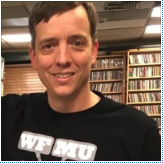 Publishing Talks began as a series of conversations with book industry professionals and others involved in media and technology, mostly about the future of publishing, books, and culture. I’ve spent time talking with people in the book industry about how publishing is evolving in the context of fast-changing technology, culture, and economics.
Publishing Talks began as a series of conversations with book industry professionals and others involved in media and technology, mostly about the future of publishing, books, and culture. I’ve spent time talking with people in the book industry about how publishing is evolving in the context of fast-changing technology, culture, and economics.
Along the way, this series broadened to include conversations that go beyond the future of publishing. In an effort to document the literary world, I’ve talked with a variety of editors, publishers and others who have been innovators and leaders in independent publishing in the past and into the present.
These conversations have been inspirational to me on many levels. I have gotten to speak with visionaries and entrepreneurs, as well as editors and publishers who have influenced and changed contemporary literature and culture. I’ve also had the opportunity to speak with a number of friends and colleagues I have met over the many years I have been in the book business.
The latest visionary is Mark Hurst, who founded and operates Creative Good, a New York-based consultancy and creative platform. Mark has spent his career writing, speaking, and advising teams about how to create better products and services. I’ve been reading his impressive writing for years, and have long admired his thinking and approach to technology, culture, and human behavior. Much of what he writes and talks about can be applied to the publishing industry, especially as it relates to powerfully centralized tech companies like Amazon, Apple, and Google.
Along the way, the very creative Hurst also created the useful and cool Good Todo mobile productivity platform, the world’s first cross-platform todo list, which he described in his first book, Bit Literacy, in which he introduced the “empty inbox” method of managing email (now better known as Inbox Zero – a practice I try to follow daily with mixed success).
Mark also hosts Techtonic – see techtonic.fm – a weekly FM radio show on WFMU. Here’s the Techtonic podcast.
His book Customers Included describes how teams and organizations can create successful products and strategies by including customers, a practice I have often thought publishers could benefit from applying to marketing matters.
Brooklyn 1776, the educational mobile videogame by Hurst and the Creative Good team, won the 2016 Brooklyn Innovation Award for best indie video game.
Mark earned both a bachelor’s and a master’s degrees in computer science from MIT. He lives in New York City with his wife and son.
It was great fun for me to have the opportunity to speak with Mark for this Publishing Talks series on Writerscast. We talked about a wide range of issues that should be of interest to anyone interested in current publishing and media technology matters.
Website: creativegood.com
Email: mark@creativegood.com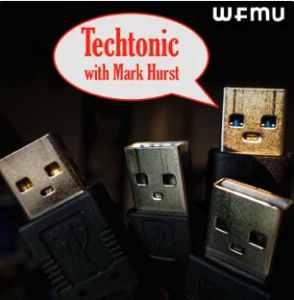

Podcast: Play in new window | Download
Publishing Talks: Interview with Arthur Attwell
February 2, 2021 by David
Filed under Ebooks and Digital Publishing, PublishingTalks, Technology
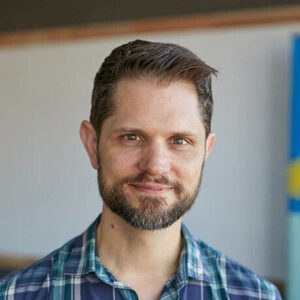 Publishing Talks began as a series of conversations with book industry professionals and others involved in media and technology, mostly talking about the future of publishing, books, and culture. I’ve spent time talking with people in the book industry about how publishing is evolving in the context of technology, culture, and economics.
Publishing Talks began as a series of conversations with book industry professionals and others involved in media and technology, mostly talking about the future of publishing, books, and culture. I’ve spent time talking with people in the book industry about how publishing is evolving in the context of technology, culture, and economics.
Some time back, this series broadened to include conversations that go beyond the future of publishing. In an effort to document the literary world, I’ve talked with a variety of editors, publishers and others who have been innovators and leaders in independent publishing in the past and into the present.
These conversations have been inspirational to me on many levels. I have gotten to speak with visionaries and entrepreneurs, as well as editors and publishers who have influenced and changed contemporary literature and culture.
Today’s guest is another such special individual. Arthur Attwell, who lives in Capetown, South Africa, got his start in publishing working for Oxford University Press as an editor. Impatient with the inefficiencies of publishing, he left to start up his current venture with some collaborators, Electric Book Works, which has been building books since 2006 that are active in multiple formats and versions, from beautifully produced print books to well fashioned ebooks to websites that express the book form in new ways.
In addition to the work he has done with Electric Book Works, this energetic entrepreneur has co-created an impactful health care information project, Bettercare, which has created and distributed healthcare learning materials to thousands of practitioners and consumers all over Africa. Although this project, entirely volunteer run, has had to cut back on its activities because of the pandemic, its impact continues with part timers and reduced capabilities.
Perhaps the most exciting efforts I have learned about recently is yet another Attwell project, Book Dash. Arthur and his partners created (and have since carefully refined) a process that assembles teams of book professionals to create and publish children’s books, and which also the raises money and support needed for the printing and distribution of thousands of books across Africa, with the stated goal that every child should own 100 books by the time they are five years old! The Book Dash process was built as an intensive one day effort, gathering teams in person, but has quickly adapted to a virtual model, enabling contributors to participate from multiple physical locations. They have made some really terrific books using this process and Book Dash has now distributed over one million books to children in Africa.
With the time difference between us, arranging this talk required bit of organizing, but we were able to speak recently by Skype. My original goal was simply to give Arthur an opportunity to talk about Book Dash. But we ended up having a much wider conversation on a range of topics, including distributed print on demand printing, a dream concept we both have explored, and much more. I suspect we will talk further in the necessary follow up conversation I hope to have with him as there are so many exciting ideas to discuss.
For now, I hope you will enjoy listening to Arthur Attwell as much as I did.
Arthur’s “On Transit” Talk
Podcast: Play in new window | Download
David Wilk interviews Peter Costanzo of Associated Press
October 2, 2016 by David
Filed under Ebooks and Digital Publishing, PublishingTalks, Technology, The Future
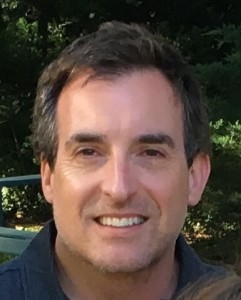 Publishing Talks began as a series of conversations with book industry professionals and others involved in media and technology about the future of publishing, books, and culture. As we continue to experience disruption and change in all media businesses, I’ve wanted to talk with people involved in our industry about how publishing might evolve as our culture is so influenced by technology, within the larger context of a change across human civilization.
Publishing Talks began as a series of conversations with book industry professionals and others involved in media and technology about the future of publishing, books, and culture. As we continue to experience disruption and change in all media businesses, I’ve wanted to talk with people involved in our industry about how publishing might evolve as our culture is so influenced by technology, within the larger context of a change across human civilization.
This series has expanded to include conversations that go beyond the future of publishing. I’ve talked with editors and publishers who have been innovators and leaders in independent publishing in the past and into the present, and will continue to explore the ebb and flow of writing, books, and publishing in all sorts of forms and formats, as change continues to be the one constant we can count on.
Back in 2011 I spoke with my friend Peter Costanzo, who even then was one of the most experienced and knowledgeable digital thinkers in the book industry. Five years later, as digital publishing has evolved and to some extent stabilized, I thought it would be useful to speak to him again to benefit from his perspective as an active participant in this aspect of our industry.
Peter is now the Digital & Archival Publishing Manager for The Associated Press. He is an award-winning book producer who also teaches the “New Media Technology: Formats and Devices” course at NYU.
Peter is also now known for being the person who taught Donald J. Trump (yes that guy) how to use Twitter! This story was widely reported earlier this year, gaining Peter considerable attention and perhaps, notoriety. Here is what the AP said in its story:
Costanzo crossed paths with Trump in 2009 when he was working as online marketing director for the publisher putting out the businessman’s book, “Think Like a Champion.” Twitter was still in its infancy at the time. But Costanzo saw the 140-character-per-message platform as a new tool that the real estate mogul could use to boost sales and reach a broader audience.
He was given seven minutes to make his pitch to Trump — “Not five minutes, not 10,” Constanzo said — in a boardroom at Trump Tower in Manhattan that appeared to be the same one used on Trump’s reality television show.
Trump liked what he heard.
“I said, ‘Let’s call you @RealDonaldTrump — you’re the real Donald Trump,'” Costanzo said. “He thought about it for a minute and said, ‘I like it. Let’s do it.'”
Our talk for this occasion focused on much more serious and meaningful matters, however.
You can follow Peter on Twitter @PeterCostanzo and Writerscast @writerscast.
Podcast: Play in new window | Download
David Wilk interviews John Ingram of Ingram Content Group
April 18, 2016 by David
Filed under Ebooks and Digital Publishing, PublishingTalks, Technology, The Future
 Publishing Talks began as a series of conversations with book industry professionals and others involved in media and technology about the future of publishing, books, and culture. As we continue to experience disruption and change in all media businesses, I’ve been talking with some of the people involved in our industry about how publishing might evolve as our culture is affected by technology and the larger context of civilization and economics.
Publishing Talks began as a series of conversations with book industry professionals and others involved in media and technology about the future of publishing, books, and culture. As we continue to experience disruption and change in all media businesses, I’ve been talking with some of the people involved in our industry about how publishing might evolve as our culture is affected by technology and the larger context of civilization and economics.
I’ve now expanded the series to include conversations that go beyond the future of publishing. I’ve talked with editors and publishers who have been innovators and leaders in independent publishing in the past and into the present, and will continue to explore the ebb and flow of writing, books, and publishing in all sorts of forms and formats, as change continues to be the one constant we can count on.
It’s my hope that these conversations can help us understand the outlines of what is happening in publishing and writing, and how we might ourselves interact with and influence the future of publishing as it unfolds.
This, my latest in this series of interviews with publishers and editors is a conversation with John Ingram, the chairman of Ingram Content Group Inc., which is now both the largest wholesaler in the book industry, and with its Lightning Source digital printing division, also the largest printer of print on demand books in the world. In addition, with the recent acquisition of Perseus Distribution, Publishers Group West, Legato and Consortium, Ingram is the largest distributor of independent publishers in all markets worldwide. Ingram also operates IngramSpark, which is now a major provider for self publishing authors.
Clearly Ingram is now pivotal to the book industry, as a key supplier of services, logistics and infrastructure to virtually every element and category within the business.
John Ingram deserves significant credit for recognizing the need for ongoing innovation and change in the book supply chain. Ingram Book Company and Lightning Source are both technology oriented operations, and with John’s leadership, the company has invested in a long list of important initiatives that have made major contributions to the growth and development of book publishing and distribution.
While many look at logistics and supply chains as boring necessities, I’d argue that they are very often the key elements of business success, and Ingram’s dedicated focus on invention, improvement and efficiency have been critical to keeping book publishing workable in a period of massive disruption.
John is a graduate of Princeton University, where he received his bachelor of arts degree in English in 1984. In 1986, he received his master of business administration degree from the Owen Graduate School of Management at Vanderbilt University.
John joined the family business, Ingram Industries Inc., in 1986, serving as the Assistant Treasurer and later as President of Tennessee Book Company (which became part of Ingram Content Group in 2009). He later served as President of Ingram Book Company, Vice President of Purchasing for Ingram Micro Europe, and Director of Purchasing for Ingram Micro Inc.
It is no small thing to foster innovation and experimentation inside a large company. It requires committed leadership and a willingness to both imagine a future and risk failures, learn from experiences both good and bad, constantly being aware of the broader picture of your industry and cultural trends, yet still maintaining focus on the core elements of your own business. None of this is easy.
I wanted to talk to John about some of the ways he and the Ingram companies have been able to manage change, and also to tap into his vision – how he sees the future of publishing and book distribution unfolding over the next few years. It is my pleasure to present this conversation with John Ingram for Publishing Talks, as part of my effort to document the key elements of a changing media environment as the book business moves into the future.![]()
![]()

Podcast: Play in new window | Download





